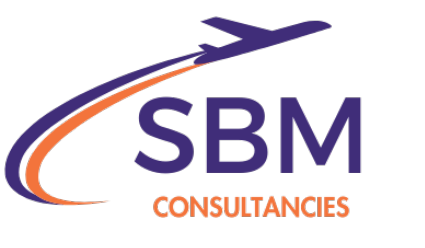What is a Research and Scholarship Visa?
A Research and Scholarship Visa is a specialized visa that allows international researchers or scholars to conduct research, collaborate with academic institutions, or take part in sponsored academic programs in a foreign country. These visas are typically granted to those who have received a scholarship or have a research opportunity with a recognized institution, research organization, or university.
Why Apply for a Research and Scholarship Visa?
A Research and Scholarship Visa allows scholars and researchers to:
Conduct Academic Research: Work on specific research projects with universities, government agencies, or other research institutions.
Access Funding Opportunities: Many countries offer scholarships to international researchers to support their work financially.
Collaboration and Networking: Conduct collaborative research with experts in the field and engage in networking opportunities.
Work in Academia: Some research visas allow researchers to work as teaching assistants or contribute to the academic environment while conducting research.
Potential Career Opportunities: These visas may lead to permanent residency or work permits, depending on the country and the researcher’s success during their studies or research.
Types of Research and Scholarship Visas
There are generally two types of visas that fall under Research and Scholarship Visas:


Can I work while on a Research and Scholarship Visa?
Can I bring my family on a Research and Scholarship Visa?
How long does it take to process a Research and Scholarship Visa?
Can I extend my Research and Scholarship Visa?
Can I switch to a work visa after completing my research?
Eligibility Criteria for Research and Scholarship Visas

Eligibility Criteria:
Proof of Academic Qualification: You must have a relevant academic background (e.g., a Master’s or PhD) to be eligible for research roles.
Research Proposal or Plan: A detailed research proposal or description of the research project you will be working on. Institutional Sponsorship: You need an invitation letter or proof of acceptance from a recognized university, research institution, or organization.
Funding: Evidence that you have the necessary financial support through a scholarship, research grant, or personal funds to cover living and travel expenses.
Health Insurance: Many countries require applicants to show proof of health insurance coverage for the duration of their stay.
Valid Passport: Your passport should be valid for the duration of your stay in the host country.
English or Local Language Proficiency: Depending on the country, you may need to demonstrate proficiency in English or the local language (e.g., TOEFL, IELTS).
Documents Required for a Research and Scholarship Visa
Passport: Valid for at least 6 months beyond your intended stay. Proof of Research Opportunity/Scholarship: An invitation letter from the host institution or a scholarship award letter.
Research Proposal: A detailed description of the research project you will be undertaking. Proof of Funding: Bank statements, scholarship details, or research grant confirmation.
Academic Documents: Transcripts, academic certificates, and any previous research experience or publications.
Health Insurance: Proof of valid health insurance coverage for the duration of your stay. Visa Application Form: Completed and signed application form. Visa Fee: Payment of the visa application fee (which varies by country).
Proof of Language Proficiency: Test scores like TOEFL or IELTS, if required by the country.
Countries Offering Research and Scholarship Visas
The J-1 Visa is designed for researchers, scholars, and professors participating in exchange programs. Eligibility: Must have an offer from an accredited U.S. university or research institution.
Duration: Typically valid for the length of the research project (up to 5 years).
Work Rights: J-1 visa holders may work as part of their research or teaching activities.
Canada (Study Permit, Research Visa)
International scholars can apply for a Study Permit if they are enrolling in a research program. Eligibility: Must have an offer from a Canadian institution. Duration: The study permit is valid for the duration of the research program.
Work Rights: Part-time work is permitted during studies, and post-graduation work options are available.
United Kingdom (Tier 5 Researcher Visa)
The Tier 5 Researcher Visa is for researchers coming to the UK for temporary work on a research project.
Eligibility: Must be sponsored by an approved research institution.
Duration: Typically up to 2 years, renewable.
Work Rights: Can work for the sponsoring organization and pursue research-related activities.
Australia (Temporary Activity Visa Subclass 408)
The 408 Visa allows individuals to undertake short-term research projects in Australia.
Eligibility: Must be sponsored by an Australian research organization or university. Duration: Typically issued for up to 2 years.
Work Rights: Can work in the field of research related to the project. Germany (Research Visa)
Germany offers a Research Visa for individuals who are invited to carry out research or participate in an academic program.
Eligibility: Must have a confirmed invitation from a German research institution or university.
Duration: Valid for the length of the research project or program. Work Rights: Researchers can work only for the institution sponsoring them.
France (Scientific Research Visa)
France offers a visa for international researchers who wish to conduct research at French institutions. Eligibility: Must have an invitation from a French research institute.
Duration: Typically granted for 1 year, renewable.
Work Rights: Researchers may be allowed to work for the institution sponsoring their research.
Benefits of a Research and Scholarship Visa
Funding Support: Many countries offer scholarships, grants, and stipends to international researchers, easing financial burdens.
Cultural and Professional Exchange: Opportunities to collaborate with leading scholars and work in an international environment.
Pathway to Employment: Some research and scholarship visas provide pathways to work in the host country after completing the research or scholarship program.
Residency Options: Certain countries offer pathways to permanent residency or citizenship after successful completion of a research program.


